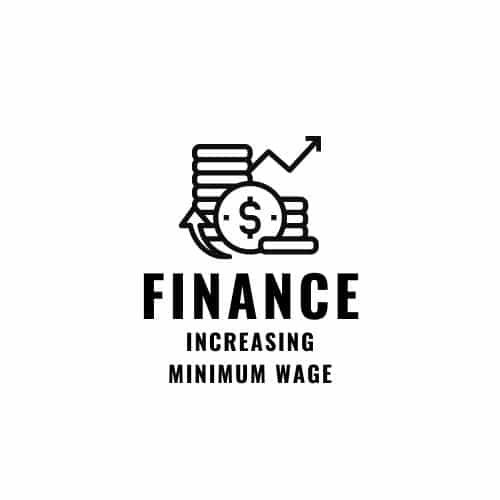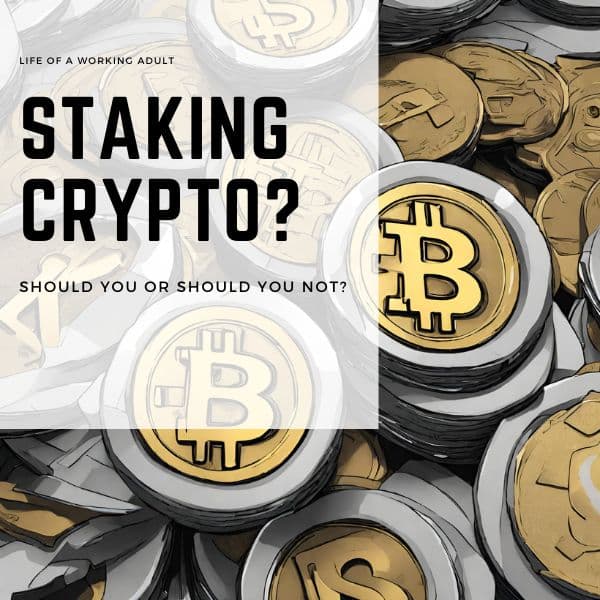Effective 1 May 2022, the monthly minimum wage in Malaysia will increase to RM1,500. Is increasing minimum wage always a good thing?

| Minimum Wages Order 2022 Key provisions: – The monthly minimum wage is RM1,500 effective 1 May 2022. – Employers* with less than 5 employees are exempted until 1 January 2023. Until then, the minimum wage for these employers is maintained at RM1,200 a month (City Council or Municipal Council area), or RM1,100 (other than City Council or Municipal Council area). *Note: Employers carrying out professional activities are not exempted (e.g. engineers, lawyers, surveyors and medical practitioners). |
The primary intentions of increasing minimum wage is clear – social justice – to overcome poverty. To the average Joe, one would think that increasing minimum wage is a catch all net that helps pull low-earning households out of poverty. But is that really so?
The good that comes from increasing minimum wage
Individual Point-of-View: Higher earnings means better overall standard of living for minimum wage workers
The primary argument in favour of raising the minimum wage is definitely putting more money into the pockets of minimum wage workers. Higher earnings would improve the overall stand of living for this group of people, as they will have more income to handle the increases of cost of living. This should elevate more people above the poverty line.
Read also: The Law of Demand
| Fun fact: Minimum wage was announced in October 2010 and introduced in January 2013 as one of the Government’s policy instruments vide the New Economic Model (NEM) to ensure inclusiveness by transforming the economy from a middle-income to high-income economy by the year 2020. |
There are other issues as well which are closely tied to the minimum wage law such as excessive overtime and lack of rest days. The implementation of minimum wage is supposed to contribute to a better work-life balance for this particular segment of the society.
This will also directly have an impact on the proliferation of social ills in the society. Kids involved in basinal lajak, rempit, drugs… just to name of few mostly come from homes where their parents are too busy trying to make ends meet. They do this by taking on more than one job, working excessive overtime and so on. A minimum wage is supposed to ensure that a person/family is able to meet the basic needs without needing to do the overtime and the likes of it.
Government Point-of-View: Reduction for federal and state government expenditures on financial aid
With more people above the poverty line, a related potential benefit to higher earnings by workers is that there’ll be a reduction in the need for federal and state government expenditures on financial aid for poor and low-income individuals. This frees up government spending to better improve other parts of society.
In a way, the burden of providing financial aid is transferred from the government to the employer.
Employer Point-of-View: Intangible benefits for companies
An increase in minimum wage could translate into improved employee morale. It might provide temporary encouragement to spur workers to put more effort into their job duties. I’m sure we all can relate when we get a pay rise. This is usually particularly problematic with low-wage workers who feel that their job efforts aren’t keeping them from poverty.
It can also increase employee morale, which could translate into better employee retention and companies will need to spend less on hiring and training costs.
Country Point-of-View: Economic boost due to increase consumer spending
More moolah, means more money for the consumer to spend. An increase in minimum wage would put more discretionary dollars into the pockets of workers. This would result in increased consumer spending, meaning more money flowing into businesses, spurring the country’s economy.
The downsides of increasing minimum wage
Individual & Employer Point-of-View: Inflation, Potential job losses and a more competitive job market
Boosts inflation
Increasing minimum wage means additional operational costs that the business would need to bear. To cover this labor cost increase, companies would need to pass this cost onto customers by increasing prices, thus fuelling inflation.
As it is, the inflationary effects can be felt everywhere. You have more money which is supposed to translate to more benefits, but you are instead not able to do that. Hence, sometimes we find ourselves stuck in that vicious cycle.
Potential job losses and a more competitive job market
Another projected problem resulting from an increased minimum wage is that businesses might be forced to cut jobs to maintain the bottom line. Some businesses might shut down all together due to increased operational costs.
This is why companies these days are spending more on automation. In time to come, automation will play an important role in a country’s economic life. The government of a country ought to look into ensuring the masses who are occupying the lowest rung of the labour market have sufficient skills. Hence, the impetus is on policy planners plan systems which will up skill the working class to match the demands, needs and changes of the day.
Read also: How is artificial intelligence impacting our daily lives? [6 big ways you might not have known]
As it is, many Malaysian industries are protesting against the minimum wage rule, citing that they could lose their competitive edge due to the additional wage cost. They have been urging the government to consider a gradual increase to the set amount over a 3 year period. However, they were companies which were very quick to embrace the minimum wage requirement, implementing it even before it was made mandatory.
It might also cause the labor market to be more competitive for minimum wage jobs. The net outcome of an increased minimum wage might be a large number of overqualified workers taking up minimum wage positions that would ordinarily go to young or otherwise inexperienced workers. This could impede younger, less experienced entrants to the job market from obtaining work and gaining experience to move their careers forward.
In conclusion
Raising minimum wage is often an illusion that it benefits everyone and reduces all poverty. In reality, raising the minimum wage creates losers as well as winners among poor households.
It is a delicate balance to juggle. It can result in many positive effects if implemented right, but disastrous if wrongly executed. Or, it can result with no impact at all, with the effects cancelling out each other.
What do you think? Is the implementation of another increase of minimum wage timely in the current state of Malaysia’s economy?





